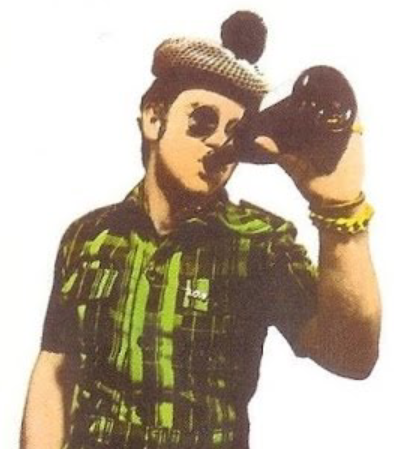I’ve been curious how many working researchers we’ve got in this community, and what you all do!
If you’re working in science (physical or social), engineering, etc in a research capacity, give a shout in the comments and let us know what you work on! Same goes for students and amateur scientists at any level. (And by amateur I mean those of you who are working on your own experiments but just not being paid for it / not working on a degree; I’m upset that “amateur” has a negative connotation, it shouldn’t.)
I’m currently a PhD candidate, working on transmission electron microscopy and electronic materials (mainly ferroelectrics). In the past I’ve been involved in research / product development in a few different industries, including medical devices, aerogels, and materials for RF devices.
I’m a PhD candidate too - my contract is finished now, but I am still writing my thesis. So I am currently at the awkward intersection of finishing a thesis and looking for a job.
My PhD focus is in applying time-resolved spectroscopic techniques to study the excited state dynamics of molecules. Basically, these are experiments in which a pulsed laser is used to excite the sample and a second probe light is used to measure a change in the absorption in response to the light. By measuring these changes in the absorption as a function of time, and applying quantum chemical methods to calculate the spectra of potential intermediates, one can sort of recreate a molecular movie of what the molecule is doing after it absorbs light with a time resolution of femto to picoseconds. The materials that I study are organic dyes that are useful for microscopy, as well as molecules that respond to EUV light for applications in photonanolithography (for making the very small transistors in computer chips).
I am also an “amateur” scientist when it comes to biology, as many of my hobbies are nature-based and it’s not like I can turn off the science bug when it comes to hobbies.
Well that’s fascinating! The technique sounds a little bit like a cross between Raman and EXAFS/XANES? (Probably just because those are two techniques I happen to be familiar with though.)
Raman and EXAFS/XANES are techniques to probe different types of molecular transitions. Vibrational raman probes molecular vibrations, and XANES probes electronic transitions due to excitation of core electrons. Each technique will help you obtain different molecular properties. The standard approach is to apply these methods to do “static” absorption studies, meaning that one studies the transitions induced by these light sources in order to obtain molecular information of a given sample. The time-resolved techniques expand these measurements along the time dimension, so you can measure these properties but in a sample that is changing extremely quickly in response to a trigger (usually light).
So, it is not that the technique is a cross between these, but rather an approach to take Raman, or XANES, or IR-spectroscopy, or UV/Vis absorption spectroscopy, and then apply it in a time-resolved manner. You can usually take any spectroscopy technique and add “time-resolved” at the beginning and you will find someone doing that. Of course, some techniques are easier to perform in practice than others. I have done some time-resolved XANES experiments, and for those we need to go a synchrotron and the experiment is really tricky. A time-resolved UV/Vis can be done in many university labs. I don’t have practical experience with Raman experiments.
That’s a really clear explanation, thank you!
It’s science-y enough but I’m definitely not considered a scientist so much as a technologist. I work as a MRI (Magnetic Resonance Imaging) Technologist. Previously a X-Ray Technologist.
My machine does all the science for me but it’s a pretty neat concept. Using magnetic gradients and RF pulses at hydrogen protons to acquire accurate digital imaging.
Happy to have you! The science behind MRI is fascinating, and the machines themselves are really cool. Have you ever seen a magnet quench? I don’t think they’re really supposed to happen during normal operation, but some of the videos I’ve seen have been rather dramatic.
It is pretty crazy people were able to figure that all out and we are able obtain crazy detailed pictures without radiation.
No I haven’t seen it! Hoping to see a controlled quench someday but also hoping to avoid needing to use it in any emergency situations; it’ll have to be a damn near life/death situation to hit that button. Very costly decision. I guess there’s also a dwindling supply of helium in the world so that could get interesting as time goes on.
Yeah, helium being a finite resource was something that really surprised me when I first learned about it! Better to keep it inside the MRI as much as possible for sure
helium recovery and recycling has come a long way, and the costs of helium are now justifying the extra expense of the hardware, so I think that problem should abate somewhat in the coming years.
I’m a research professor of neurology, and my research focuses on developing novel cognitive assessments for measuring early-stage Alzheimer’s disease and other types of dementia.
That’s a field where it seems (to an outsider) like a lot has been happening recently! Glad to have you here!
You’d be correct! The new anti-amyloid drugs are very exciting, and it makes my work on preclinical Alzheimer’s even more fulfilling as it can have a real impact on getting people tested and treated as early as possible.
I’m a software developer who works on Backend/APIs/Cloud/AI. Currently browsing Lemmy instead of actually doing work in my home office…
Currently browsing Lemmy instead of actually doing work in my home office…
Some days just turn out that way lol
I’m a PhD in chemical engineering and work in a testing laboratory for electrical engineering insulating materials. My dissertation was using predictive modelling (some data mining and machine learning, some more classical statistical methods) to estimate material properties from spectral data. I’m trying to combine a full-day engineering job with writing more journal articles in my spare time. Currently not going well but at least I’m not lacking for data!
Haha that sounds like it must be keeping you real busy! I’m currently spending most of my days writing and it takes up so much time on its own I can’t imagine trying to combine that with a full time job. More power to you!
I’m a PhD candidate in inorganic and biochemistry! Loving the chem representation here, and loving OP’s username.
I’ve got a PhD in nonlinear vibrations. I’ve left academia for the space industry though.
That definitely sounds like something that could be useful in a lot of different ways - including in the space industry!
Yeah well most industries pray that everything stays all good and linear, but sadly it isn’t always the case haha. The next level is to design a structure with nonlinearities on purpose.
working in a cultivated meat startup, msc in biotechnology, but now disillusioned and wanting to do something academic/more down to earth and helpful
If it’s not too personal, may I ask what lead to your disillusionment with the field? “Lab grown” meat (assuming that’s what you mean by cultivated) has seemed like a promising idea to me for a while, in terms of environmental impact and the ethical consideration of animals.
That doesn’t feel helpful to you?
no, the technology is underdeveloped, and very resource intensive. I don’t think it is a viable alternative at all. Better to just eat what grows from the ground than spend so much time, money, energy forcing cells that don’t want to grow in such an artificial environment. I’ve also started to notice how it seems to be quite tied to EA and longtermism crowd, who are investing in it a lot.
True. It could still have benefits from a vegetarian or conservation perspective, though.
Have you thought about trying to get into genetically modified plant crops, then?
I did consider it yes, but those companies are evil too, they make a farmer reliant on a super crop that can’t produce its own seeds, and then make a mint by selling them seeds every year.
I work at a company that makes large and small rocket engines (e.g., the ones on SLS/Artemis, and solids for a number of defense programs), and various electrical power systems (e.g., for the ISS and some of the Mars rovers). I manage the space software engineering organization.
Look at this rocket surgeon, over here. SMDH.
I’m just a software/systems guy; I work with a lot of genuine rocket scientists - they’re fun to work with.
Graduate student in ecology, just finishing up.
what are you hoping to do afterward? I’ve always found ecology interesting
Congrats on (being close to) making it through!
I work in mine closure. I create plans to re-integrate them back into the surrounding landscape, and provide valuable end land uses (not just those centred around ecosystem re-establishment).
That’s so cool! Sounds like an incredibly rewarding job. (Also I love visiting old mines that are no longer working but are open to the public for viewing. Always a cool experience.)
trained physicist with 2D materials background, turned all-round engineer with an ultrafast spectroscopy startup.
I work a day job in IT, have a side business doing IT, work an occasional shift at my buddy’s liquor store, and sell furniture on the side.
Glad to have you 'round!
I’m a Mechanical Engineer who designs automation equipment. Basically lots of 3-6 axis robots, multi-axis gantries, various conveyance mechanisms, and other specialized automation equipment integration. Its fun because it is a job all about things moving from point A to point B.
That sounds like a pretty fun job, yeah! A bit like a real-world puzzle game, maybe? But presumably with more freedom to do what needs to be done to get things from A to B efficiently.
100%.
It’s kind of like designing Lego but with weldments, extruded aluminum, cylinders, servos, and any other number of components.
PhD in Geology. Now am a research scientist working in more general materials science/chemistry/gas adsorption. My thesis was on lunar petrology where I studied Apollo 16 samples. My current research is much less exciting. Haven’t touched a rock in ages and my geologist heart hurts from it haha
Dang we gotta get you some cool rocks!
(I’ve always kinda wanted to thinly section some rocks with nice big grains and put them in the TEM; so many natural minerals have really interesting crystal structures!)








